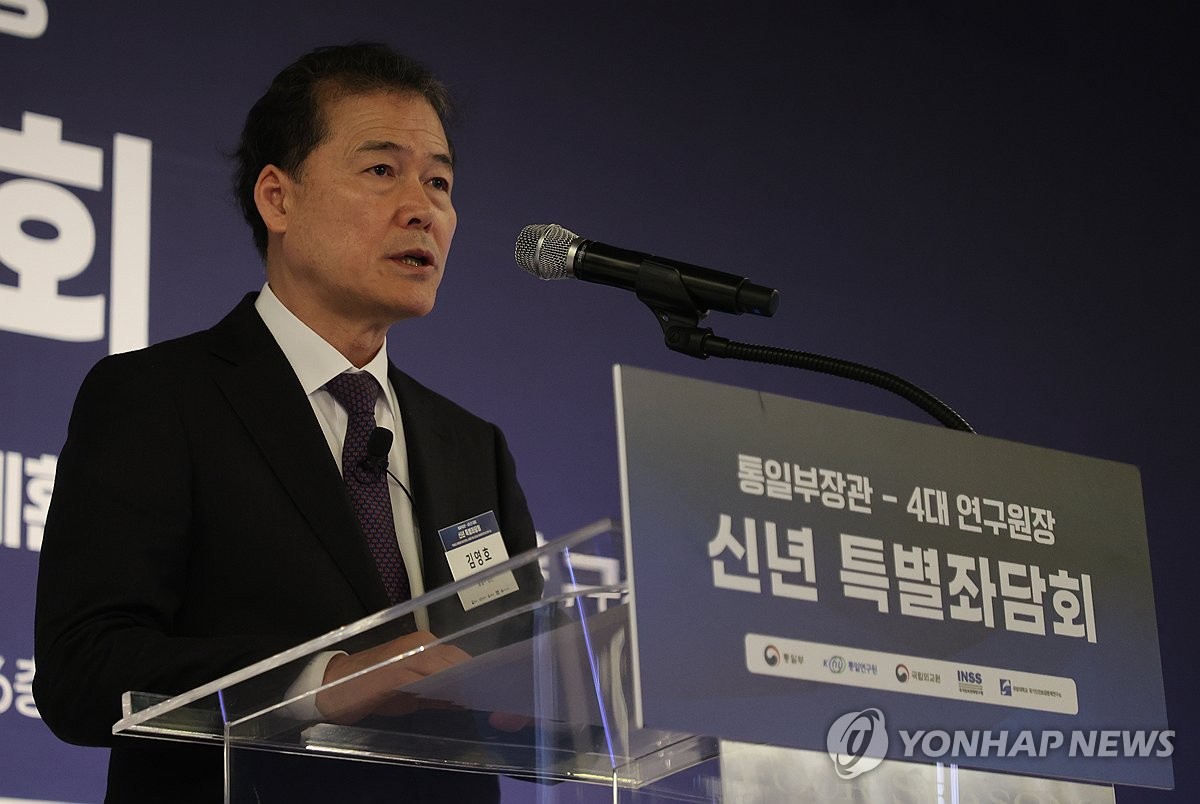- California Assembly OKs highest minimum wage in nation
- S. Korea unveils first graphic cigarette warnings
- US joins with South Korea, Japan in bid to deter North Korea
- LPGA golfer Chun In-gee finally back in action
- S. Korea won’t be top seed in final World Cup qualification round
- US men’s soccer misses 2nd straight Olympics
- US back on track in qualifying with 4-0 win over Guatemala
- High-intensity workout injuries spawn cottage industry
- CDC expands range of Zika mosquitoes into parts of Northeast
- Who knew? ‘The Walking Dead’ is helping families connect
Unification minister stresses importance of principle-based policy on N. Korea
South Korea’s point man on North Korea emphasized on Monday the importance of adhering to a principle-based policy at a time when the North is seeking to dial up tensions on the Korean Peninsula.
Unification Minister Kim Yung-ho’s remarks came as Pyongyang has been ramping up tensions on the Korean Peninsula in the new year — an election year for South Korea and the United States — with weapons tests and harshly worded rhetoric.
During a year-end party meeting, North Korean leader Kim Jong-un defined inter-Korean ties as relations between “two states hostile to each other” and vowed to “suppress” South Korea’s whole territory in the event of a contingency.
“At times like this, the government will push for a firm and principle-based policy on unification and inter-Korean affairs that is rooted in Article 3 and Article 4 of the Constitution,” Minister Kim said in a roundtable session with the leaders of four policy research institutions, including the Institute for National Unification and the Korea National Diplomatic Academy.
Article 3 in South Korea’s Constitution stipulates that the territory of the Republic of Korea consists of the Korean Peninsula and its adjacent islands, while Article 4 calls for seeking unification and carrying out a policy of “peaceful unification” based on the “basic free and democratic order.”

Kim said the government will closely monitor possible changes in the North Korean regime following its shift on inter-Korean affairs after the North Korean leader declared there is no point in seeking unification with the South.
As part of such a move, the North Korean leader ordered the removal of symbols of inter-Korean reconciliation, calling them “the remnants of the past era,” including what he called an “eyesore” monument in Pyongyang built to mark late founder Kim Il-sung’s blueprint for federation system-based unification.
“Kim Jong-un is reversing the policy that his predecessors had pushed for,” the minister said. “North Korea is a regime based on hereditary succession of power. … we cannot rule out the possibility of Kim’s actions bringing about an ideological vacuum.”
The minister said North Korea will likely put the blame of the internal confusion on external factors, calling for strengthened deterrence against North Korea’s possible military provocations.
In regard to North Korea’s economic and social situations, Kim said more North Koreans have heavily relied on markets for their livelihoods amid the faltering food rationing system.
The minister cited a report the unification ministry will release for the first time Tuesday, which is based on interviews with more than 6,300 North Korean defectors over the past 10 years.
“The longer North Koreans stayed under the Kim Jong-un’s rule before fleeing the North, the more they had a negative view about the regime,” Kim said.
Nearly 60 percent of surveyed North Korean defectors said they are dissatisfied with the Kim Jong-un regime, and more than 50 percent of them oppose the hereditary power succession of the so-called Paektu bloodline, he added.












